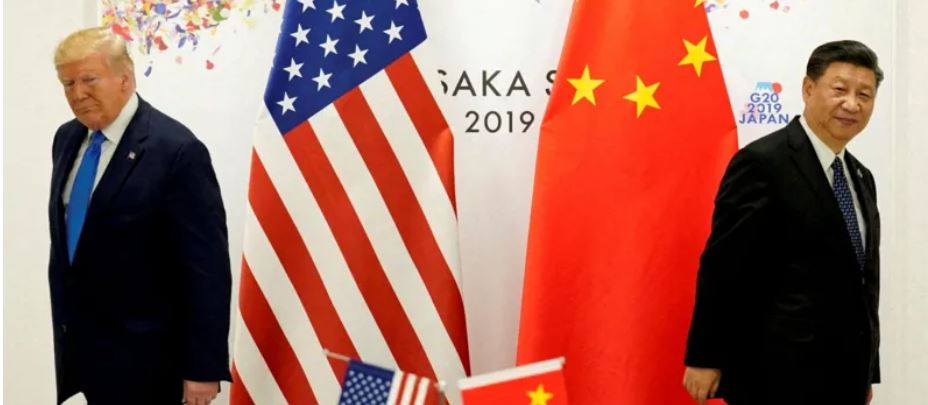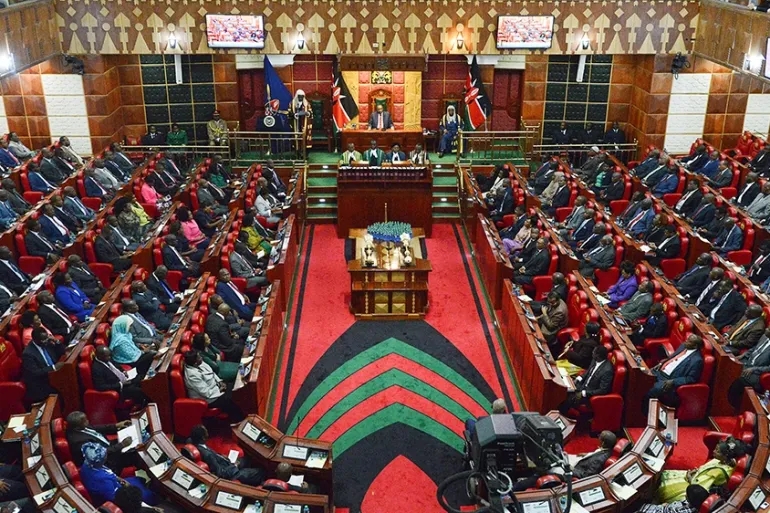

The Chinese and United States officials have concluded a high-level economic and trade meeting in Switzerland, sending hopes that the two largest economies in the world would reach trade consensus after months of tensions caused by President Trump’s tariffs on all US trade partners.
Following the meeting, the two sides have resolved to suspend reciprocal tariffs to give way for structured trade and economic engagement.
Trump’s trade tariffs have significantly disrupted the global economy by increasing costs, slowing growth and destabilising trade relationships.
These tariffs, including a 10 per cent baseline on all imports, 25 per cent on Canada and Mexico, and up to 145 per cent on China, have triggered widespread economic consequences around the world.
The steep tariffs have stifled Chinese exports, particularly in electronics, textiles and machinery, which are major components of US-China trade.
This has resulted in reduced export revenues and triggered second-order effects, such as decreased manufacturing investment and weakened domestic consumer sentiment in China. Effectively, Beijing has opted to actively cultivate alternative markets.
On the other hand, the US consumers are shouldering the brunt of the tariffs with higher prices hitting low-income households the hardest.
Despite claims that tariffs would revive US manufacturing jobs, evidence suggests minimal job creation in protected sectors, with broader job losses in industries reliant on imported inputs.
Essentially, the tariffs have failed to address the trade deficit’s root causes, which are attributed to macroeconomic factors like US consumption patterns rather than trade policy.
President Trump’s trade tariffs have imposed substantial costs on the world’s two leading economies. The effects underscore the complexity of trade wars, where intended protections often yield unintended economic burdens, felt most acutely by consumers and workers.
Yet the tariffs now carry even more serous ramifications for the global economy. They have sparked retaliatory actions, escalating into a global trade war.
China imposed 125 per cent tariffs on American goods, affecting $330 billion in US exports. Similarly, the European Union announced countermeasures on $100 billion of US products, while Canada has targeted more than $100 billion in American goods.
The International Monetary Fund has downgraded its 2025 global growth forecast to 2.8 per cent from 3.3 per cent, citing Trump’s tariffs as a primary cause. The results of such contraction will disproportionately hit developing countries, most of which are based in Africa.
The tariffs have caused significant market turmoil, erasing trillions from global stock markets in early April. The US dollar slid to a three-year low, while Treasury bond yields surged, reflecting investor uncertainty.
Around the world, businesses, facing unpredictable trade policies, have cut investments and paused international orders.
The US tariffs have created profound implications for African economies, many of which rely on the United States as a key export market under programmes like the African Growth and Opportunity Act (Agoa).
Some African nations are facing levies as high as 50 per cent due to the US tariffs. These measures disrupt decades of preferential trade arrangements, particularly under Agoa, which granted duty-free access to the US market for eligible African countries.
The economic impacts on Africa now manifest through direct trade disruptions, indirect global trade effects and compounded vulnerabilities due to simultaneous US foreign aid cuts.
In 2023 Agoa facilitated $47.5 billion in two-way trade with African exports to the US reaching $29.3 billion. Agoa’s potential renewal in September this year remains uncertain, threatening long-term market access for 32 eligible African countries.
China and the US have been strong sources of development resources for poorer countries. China has, for instance, become the largest source development projects financing for African countries while US aid has been crucial in strengthening wide-ranging social programmes in the continent.
Trade tiffs between the two leading economies therefore doesn’t hurt just the two countries but also the whole world. A US-China trade deal would not only set the tone for other trade partnerships between other countries and the US; it will also be key to resetting global trade and economic outlook for the benefit of the whole world.
As is already apparent, trade wars produce no winners. The key is dialogue and structure consultations that effectively predict and avert catastrophic policies. The China-US trade dialogues should be expedited to shorten the wait for a more responsive framework for global economic stability and development.
The writer is a scholar of international relations with a focus on China-Africa development cooperation. X: @Cavinceworld

















